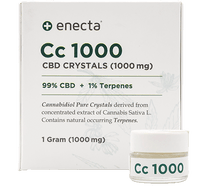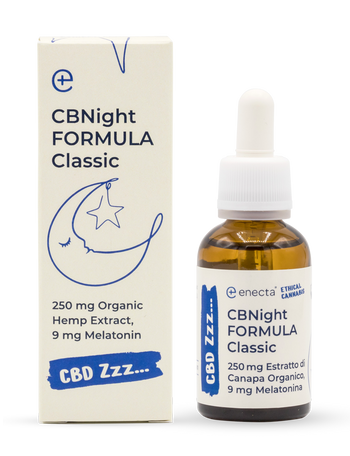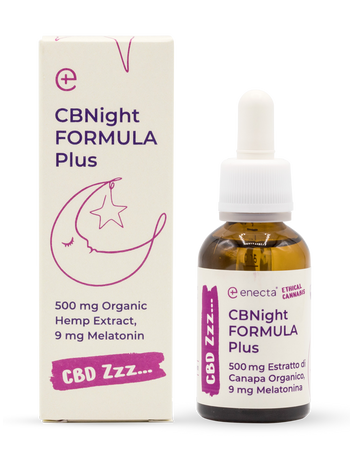Introduction: Why CBD is Antipsychotic
Cannabidiol, known as CBD, is a natural compound from cannabis that has gained much attention for its potential health benefits in recent years. One particularly interesting property is its proven antipsychotic effects in several studies.
What is CBD?
CBD is one of many cannabinoids found in cannabis. Unlike THC (Tetrahydrocannabinol), the substance that causes the "high" feeling, CBD has no intoxicating effects, thus not leading to psychosis. This makes it intriguing for medical use, especially in patients with conditions like anxiety, sleep disorders, and even psychotic disorders such as psychosis.
How Could CBD Help with Psychotic Disorders?
Thinking of Cannabidiol merely as a placebo because it doesn’t intoxicate like THC is a mistake. While research is still in its infancy, the scientific community is excited by the findings so far, conducting study after study to fully understand all effects of the cannabis compound CBD. Even now, the benefits of this cannabinoid in medicine can be discussed.
Brain Impact
Endocannabinoid System: CBD interacts with this system in the body, which plays a role in regulating mood, pain, and cognitive functions. It's believed that CBD influences this system in a way that has positive effects on well-being.
Dopamine: This neurotransmitter is often imbalanced in psychotic disorders. CBD could help regulate dopamine levels without the severe side effects that many traditional antipsychotics have.
Glutamate: CBD may also affect the glutamate system, important for learning and memory. Normalizing this system could help improve symptoms of psychotic disorders like psychosis.
Anti-inflammatory and Neuroprotection
CBD has anti-inflammatory properties that could help reduce brain inflammation associated with psychotic disorders.
The neuroprotective effects of CBD could support the health of brain cells and protect against long-term damage.
Serotonin
CBD acts on serotonin receptors, which may help reduce anxiety and depressive symptoms often present in people with psychosis.

Preventative Effects of CBD on Psychotic Disorders
Interest in Cannabidiol (CBD) as a preventative treatment for psychotic disorders is growing, as the substance shows promising properties without the psychoactive effects of THC. CBD's calming effect on the brain makes it a candidate for preventing conditions like schizophrenia or bipolar disorders. By regulating neurotransmitters and promoting neurological health, the cannabis compound CBD could help maintain balance in the brain and prevent the development of psychotic symptoms. This preventative role of CBD is especially relevant for individuals who, due to genetic or environmental factors, are at increased risk for psychotic disorders.
Mechanisms of Preventative Effects
Neuroprotection: CBD has neuroprotective properties that can protect the brain from damages that could lead to psychotic disorders. It helps maintain neuronal integrity and promotes brain health.
Modulation of the Endocannabinoid System: By interacting with the endocannabinoid system, CBD could help restore balance in this system. Dysregulation of the endocannabinoid system is linked to the development of psychotic disorders.
Anti-inflammatory: Inflammation processes in the brain are associated with the development of psychotic disorders. CBD's anti-inflammatory properties may reduce the risk of developing psychotic disorders by lowering inflammation.
Stress Reduction: Chronic stress is a known risk factor for developing psychotic disorders. CBD may help mitigate stress responses and increase resilience against stress-related changes in the brain.

Dosage and Administration of CBD for Antipsychotic Purposes
Determining the correct dosage of CBD for patients with psychosis is essential to surpass the placebo effect and achieve the desired benefits. However, the optimal dosage can vary from person to person, depending on factors such as individual body weight, the specific condition, the severity of symptoms, and the individual's response to CBD. Here are some best practices and considerations to find the most effective dosage and form of administration of CBD for antipsychotic purposes.
Starting and Dosage Finding
Start with a low dose: It's generally recommended to start with a low dose of CBD and gradually increase it until the desired effect is reached. This approach, often known as "start low and go slow," helps minimize the risk of side effects and find the optimal dose.
Individual Adjustment: The dosage can be gradually increased based on tolerance and efficacy. Some studies on CBD in psychotic disorders have used daily doses in the range of 600 to 800 mg, but such high doses should only be considered under medical supervision and after careful evaluation.
Forms of Administration
Oils and Tinctures: CBD oil, dropped sublingually (under the tongue), is a common form of administration. This method allows for rapid absorption into the bloodstream and facilitates precise dosing.
Capsules and Pills: CBD in capsule or pill form offers a convenient way to ensure a consistent dose. This form is particularly suitable for individuals who prefer a precisely measured dose without taste.
Vaping: Although vaping CBD allows for rapid absorption, it's often not recommended due to potential risks to the respiratory system and the lack of regulation of ingredients in vape products.
Monitoring and Adjustment
Close Monitoring: Especially in the initial phase, the response to CBD should be meticulously monitored to adjust the dosage accordingly.
Interaction with Other Medications: CBD can interact with certain medications, including traditional antipsychotics. Therefore, it's important to consult a doctor before starting CBD therapy to avoid potential interactions.

CBD in Various Mental Disorders
Cannabidiol (CBD) has emerged as a promising option in the treatment of a range of mental disorders. Through its diverse mechanisms of action in the brain, CBD can potentially alleviate symptoms associated with certain mental conditions without the severe side effects of many traditional medications. In the following sections, we explore how CBD can specifically support various mental illnesses, based on current scientific findings and research.
Schizophrenia
In schizophrenia, CBD might help alleviate positive symptoms such as hallucinations and delusions. Studies suggest that CBD acts by modulating the dopamine and glutamate systems without the typical side effects of traditional antipsychotics. This could significantly improve the quality of life for sufferers by promoting mental clarity and reducing the risk of mood swings.
Bipolar Disorder
Individuals with bipolar disorders experience extreme mood swings. CBD, through its calming effect and the ability to modulate the neurochemical balance in the brain, might be beneficial. Preliminary research suggests that CBD can help soften both the manic and depressive phases of the disorder by exerting a stabilizing effect on mood.
Anxiety Disorder
CBD is particularly renowned for its anxiolytic properties. It interacts with serotonin receptors and may help reduce feelings of anxiety and fear. This makes CBD an attractive option for individuals with anxiety disorders, including social anxiety disorder and generalized anxiety disorder, contributing to overall calm and improved well-being.
Psychotic Disorders
Beyond schizophrenia, there are other forms of psychotic disorders where CBD could be helpful. Through its ability to regulate dopamine activity in the brain without causing severe side effects, CBD offers a potential treatment alternative. It supports the reduction of psychotic signs such as thought disorganization and difficulties in distinguishing between reality and delusions.
PTSD (Post-Traumatic Stress Disorder)
CBD may also be beneficial in treating PTSD by helping alleviate symptoms such as flashbacks, nightmares, and persistent anxiety. CBD’s interaction with the endocannabinoid system could help regulate memories and reduce the hyperarousal associated with traumatic memories. Moreover, CBD's anxiolytic effect might aid those affected in achieving a calmer and more restorative sleep.

CBD Alternatives: A Comparison with Traditional Medications
In the treatment of mental disorders, traditional antipsychotics have been the standard therapy for decades. These medications mainly aim to control symptoms of conditions like schizophrenia and bipolar disorder by acting on the brain's dopamine system. However, they often bring a host of side effects, ranging from weight gain and tiredness to more serious conditions like metabolic syndrome. In recent years, CBD has garnered attention as a potential alternative treatment, particularly because of its promising profile in terms of efficacy and safety. Here we examine how CBD compares to traditional antipsychotics.
Efficacy
Traditional antipsychotics are effective in reducing so-called "positive symptoms" of schizophrenia, such as delusions and hallucinations, but may be less effective for "negative symptoms" like reduced emotional expression and lack of motivation.
CBD has shown in preliminary studies to help with not just positive, but also negative symptoms, suggesting a broader application scope. CBD seems to have a modulating effect on various neurotransmitter systems, not just dopamine, which could contribute to treating the complex symptomatology of psychotic disorders.
Safety and Side Effects
Traditional antipsychotics are known for potentially severe side effects, including movement disorders (such as Parkinsonism), weight gain, and the risk of developing metabolic syndrome. These side effects can significantly impact the patients' quality of life and lower adherence to medication.
CBD, on the other hand, has shown a more favorable side effect profile. The most common side effects are mild and include fatigue, diarrhea, and changes in appetite or weight. Importantly, CBD does not seem to cause the severe motor side effects observed with traditional antipsychotics.
Long-Term Effects
The long-term use of traditional antipsychotics can lead to enduring side effects, including the development of tardive dyskinesia, a serious movement disorder.
Less is known about the long-term effects of CBD, as long-term studies are still lacking. However, existing data suggest that CBD may maintain a relatively safe profile even with prolonged use.
Conclusion
CBD presents a promising alternative to traditional antipsychotics, especially for patients sensitive to the side effects of standard medications or for whom these are not sufficiently effective. However, the decision on whether CBD is a suitable treatment option should always be made in consultation with a qualified healthcare provider. It's also important to note that further research is needed to fully understand and validate CBD's long-term safety and efficacy.

































